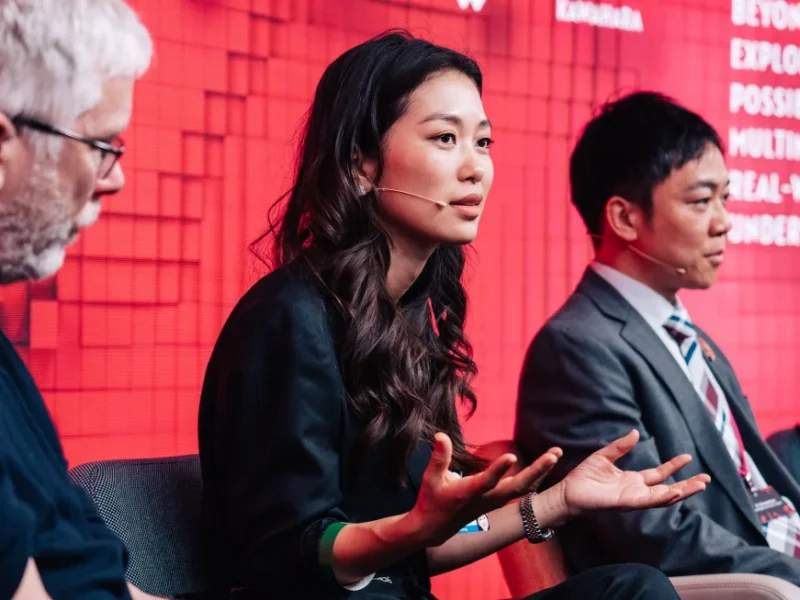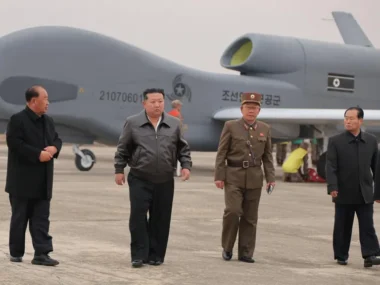It may have seemed unexpected for a speaker at a World Economic Forum (WEF) panel on artificial intelligence development, but Bolor-Erdene Battsengel began her speech by discussing her livestock. “I come from a herder community, and I still own 300 sheep,” said the 32-year-old former Mongolian government official during the WEF meeting in Davos, Switzerland.
This served as a relevant introduction to explain her deep commitment to promoting digital inclusion in Mongolia, a democratic country situated between Russia and China, where roughly 30% of the population of 3.5 million are nomadic herders.
Battsengel is the founder of AI Academy Asia, which aims to train 500 teachers to offer AI education to rural Mongolian communities. The academy is set to officially launch on January 27. “If we can give people access to equal education, it can make a tremendous difference,” she shared with CNN. For years, experts have warned about the growing digital divide between those with access to computers and the internet and those without. Globally, 2.2 billion children and young people lack internet access at home. In Mongolia, however, around 84% of the population has internet access.
AI is predicted to impact nearly 40% of jobs globally, according to the head of the International Monetary Fund, who also highlighted in a blog post last year that “AI will likely worsen overall inequality.”
Some analysts worry that the advantages of AI could favor wealthier nations with the financial resources to invest in research, development, and infrastructure like computing resources, along with English-speaking countries.
Battsengel expresses concern about the consequences of this imbalance for Mongolia, which already faces significant social disparities.
“Rural schools lack computer science teachers,” she says. “We face education inequality, income inequality, and gender inequality… If you add digital inequality to the mix, the gap will widen even further, and that’s deeply unfair to children growing up in these communities worldwide.”

A horse-mounted herder watches his sheep and goats in Khishig-Undur, Bulgan province, Mongolia, on July 5, 2024.
Equality in AI
Battsengel, a member of the WEF Forum of Young Global Leaders, shared with CNN how education has been transformative in her life. Raised in a rural Mongolian community, she relocated with her family to Ulaanbaatar at age 10. Facing bullying for her rural background, she immersed herself in her studies, skipping three grades and finishing high school at 14. By 29, she became Mongolia’s first Vice Minister of Digital Development and the youngest member of its government.
In her government role, she led the “E-Mongolia” initiative, which aimed to digitize services, enabling people in remote areas to renew passports and file taxes online instead of making long trips to government offices.
In 2021, she founded Girls Code, a non-profit offering coding bootcamps and mentoring to girls aged 16-18 from nomadic and disadvantaged communities in Mongolia. Girls Code has graduated 120 students, some of whom have gone on to study at prestigious institutions like Harvard, MIT, and Cambridge, and have developed apps and started businesses, Battsengel notes.
With AI Academy Asia, Battsengel aims to expand this work, reaching more people, including boys, to help them apply AI in their education and work. This effort is crucial as AI reshapes global industries and lifestyles. According to the World Economic Forum’s Future of Jobs report 2025, technological advances and demographic changes will create 78 million new jobs by 2030, with rapid growth in technology, data, and AI.
However, ensuring that AI benefits are distributed fairly requires adapting national AI strategies to address local challenges, as highlighted in WEF’s “Blueprint for Intelligent Economies” report, created in partnership with KPMG.
Through AI Academy Asia, Battsengel is developing curriculums to teach herders practical AI skills. For instance, Mongolia’s recent “dzud” weather phenomenon, which caused extreme winter conditions and killed millions of livestock, underscored the importance of AI for weather prediction and livestock health management. Battsengel believes that by applying AI, herders can better protect their livestock and livelihoods during future dzuds.
She concludes, “I really hope that they use the knowledge of AI, even in the countryside, to improve their quality of life.”











